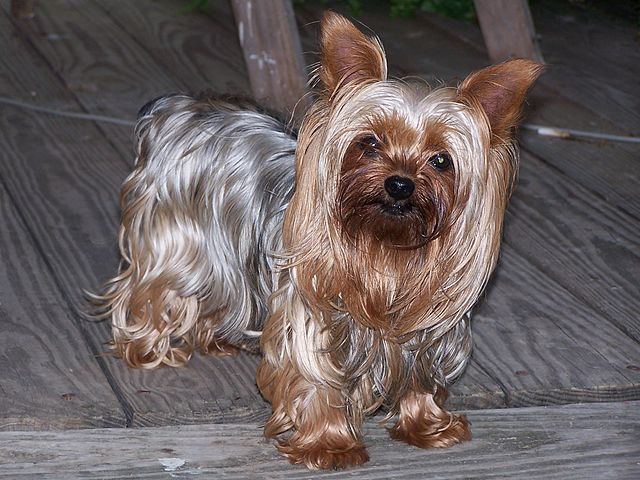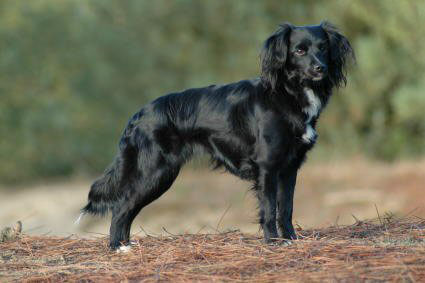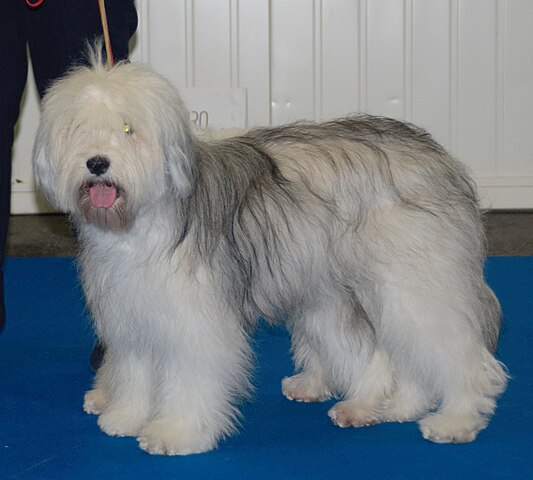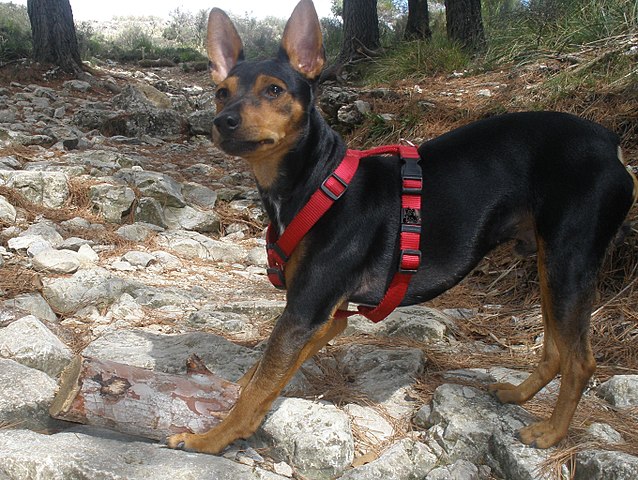The Yorkshire Terrier is a toy breed with the heart of a terrier. These tiny dogs are courageous and spunky, and may keep you on your toes! They often seem to think they are bigger than they really are, and may attempt to intimidate strangers and houseguests alike with persistent barking (a true terrier trait). They are also affectionate, playful, and make perfect lapdogs. Yorkies make great pets for first-time dog owners! Their size does make them delicate, however, and they are not the best match in homes with small children.
The crowning glory of the Yorkie is his long flowing coat, but in order to keep it in good condition it will require plenty of work! Weekly baths and lots of brushing will keep it from getting dirty and tangled. Yorkies traditionally have some of their facial hair tied up on top of their head to keep it out of their eyes and mouth. This will need to be taken down, brushed out, and put back up daily. Care of teeth is especially important in this breed as well, and a daily tooth inspection and brushing is highly recommended.
Many people choose not to train tiny breeds – either thinking the dog doesn’t need it or can’t do it. This couldn’t be further from the truth. Every dog needs some training, and the Yorkie is no exception! If you don’t give them an education they can become annoying, overprotective pests which are difficult to live with. Unlike some of the other breeds classified as toys, the Yorkie can have a domineering temperament and will try to run the household if he can get away with it! These little guys are actually quite smart and often learn very quickly, so there is no reason not to obedience train a Yorkshire Terrier! Some people find their Yorkies can be sensitive, while others do not. In training, it is important to look at each dog as an individual and adjust the training techniques to that dog’s particular temperament.
Yorkies are fairly active and do need a daily walk to get their energy out. This said, because of their size they do not need to walk very far! As long as they are able to really stretch their legs and “see the sights”, they are fairly easy to manage as far as activity-level goes (keep the weather in mind when taking the dog for a walk -Yorkies are sensitive to weather extremes and are prone to getting too cold as well as too hot). When at home, the breed is neither lazy nor bouncing off the walls – medium active best describes them. As such, they often do fine living in apartments (as long as you are able to address their tendency to bark frequently). 
Separation anxiety can sometimes be a problem in the Yorkshire Terrier, particularly in dogs that are super-bonded to one person specifically. There are behavior modification protocols for this issue, although it may take a while to work through. Potential owners should be aware that many Yorkies are prone to anxiety disorders, including separation anxiety. Lifestyle of the owner is one component of many behavioral disorders – someone that works long hours every day probably shouldn’t consider owning this breed. This is especially true when considering that many Yorkies are difficult to housebreak, and will often require more time to work on this skill.
Yorkies are not always friendly when encountering new dogs and may act aggressively. Proper socialization when young will normally help this, although they may also need training to target this specific behavior. The breed might also chase small animals (like squirels and rodents), although this usually stems from preditorial behavior rather than territorial. When it comes to the home, however – most Yorkies will get along with other dogs and cats as long as they were raised with them. It can get trickier if a new pet is brought to the home when the Yorkie is older. Yorkies can be territorial and “scrappy” and many have no qualms about starting fights. Introductions need to be precise and may require help from a professional in difficult cases.
A note about “teacups”. The term “teacup Yorkie” was originally a trend started by irresponsible breeders in order sell unhealthy runts of the litter. They are not exotic nor rare, and prospective owners should run away very quickly from breeders purposefully trying to breed for this detrimental size. The owner runs the risk of the dog having any number of physical and behavioral issues. A well-bred Yorkshire Terrier from a responsible breeder – on the other hand- should be generally healthy because the parents have been tested for heritable conditions.



